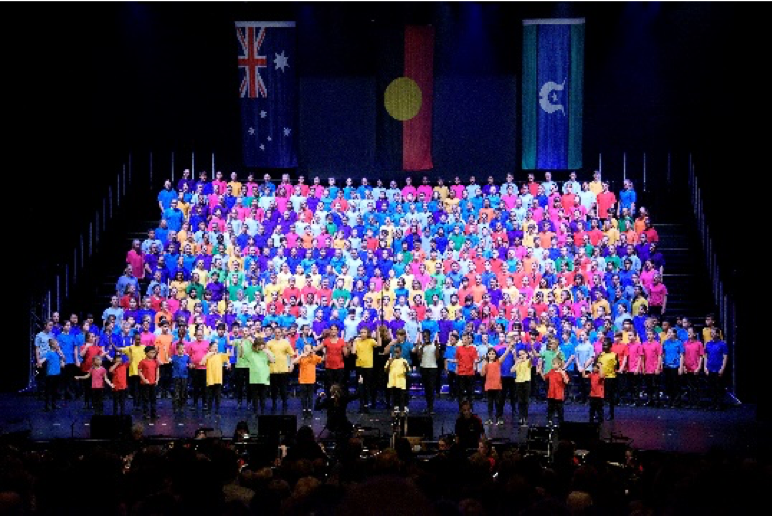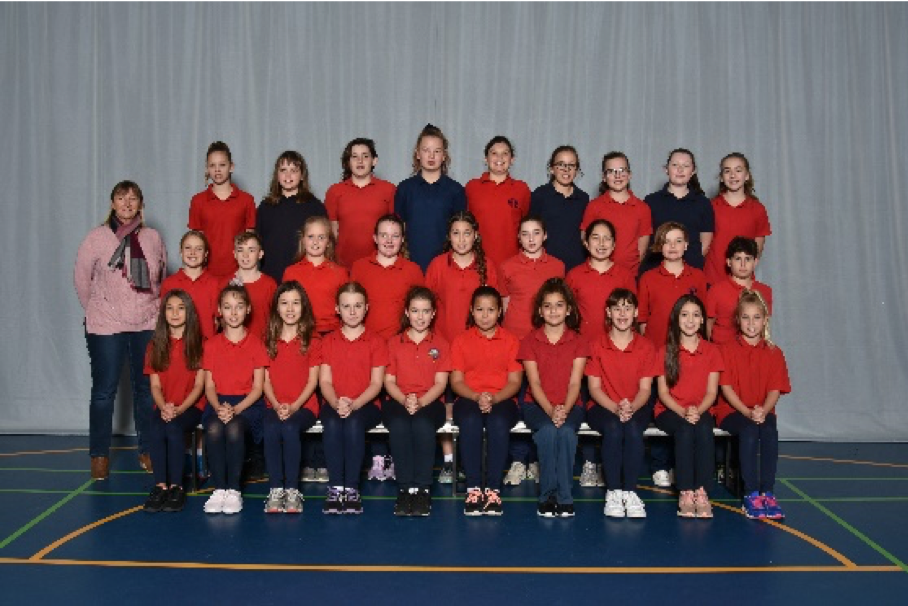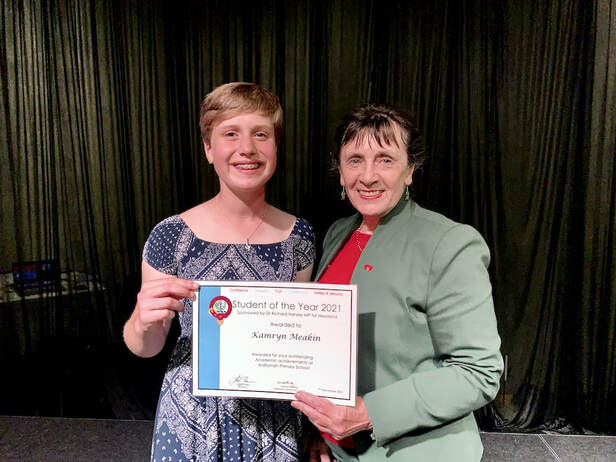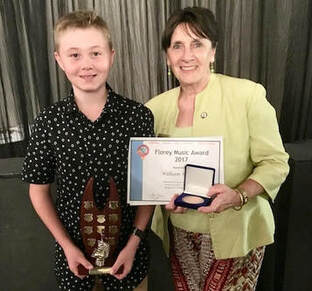Music Education
Fireworks in the Musical Brain…….. Why Music education is so important!
Go here to learn more - https://www.youtube.com/watch?v=R0JKCYZ8hng
Go here to learn more - https://www.youtube.com/watch?v=R0JKCYZ8hng
A Singing / Music Culture
Singing / playing is valued at Ardtornish because it:
- Supports wider music education
- Contributes to enhanced wellbeing
- Has broader educational benefits (Maths/Reading)
- Engages students in their own styles and genres
- Physical health benefits
- It is a form of communication
- Supports language development
- It's FUN
Most classes receive a Music/Drama lesson each week from a specialist teacher.
Throughout the year, the following is covered during these lessons:
Throughout the year, the following is covered during these lessons:
|
|
|
|
Choirs / Ensembles
Are an important part of extra curricula activities. These maybe timetabled during lesson times or before/after school.
Festival Choir
Our senior choir is part of the iconic South Australian Public Schools Music Society and the students rehearse from early term 1 towards a concert at the Festival Theatre in September.
For more information and other opportunities go to the Festival of Music website: www.festivalofmusic.org.au
Are an important part of extra curricula activities. These maybe timetabled during lesson times or before/after school.
Festival Choir
Our senior choir is part of the iconic South Australian Public Schools Music Society and the students rehearse from early term 1 towards a concert at the Festival Theatre in September.
For more information and other opportunities go to the Festival of Music website: www.festivalofmusic.org.au
Instrumental Music
The school provides the venue and administrative support for students who wish to learn to play a musical instrument. Tuition is provided by both the Department of Education and also some private tutors,(paid for by parents). Instruments available include keyboard, guitar, percussion, flute, trumpet, clarinet and saxophone. Once students have grasped their instrument they are invited to participate in a school band.
The school provides the venue and administrative support for students who wish to learn to play a musical instrument. Tuition is provided by both the Department of Education and also some private tutors,(paid for by parents). Instruments available include keyboard, guitar, percussion, flute, trumpet, clarinet and saxophone. Once students have grasped their instrument they are invited to participate in a school band.
Florey Music Award.
Each year, at the Year 7 graduation, a student receives the Florey Music award sponsored and presented by the Honourable Frances Bedford MP.
Each year, at the Year 7 graduation, a student receives the Florey Music award sponsored and presented by the Honourable Frances Bedford MP.
Considerable research has verifying the following facts, and in light of them, every parents should ask themselves,
“Why isn’t my child involved in music?”
This is because the positive outcomes flowing from it are immense. A recent survey in the USA showed that an average of 20% of high school students are enrolled in an instrumental music program and that 80% of the academic awards are consistently gained by this 20% group of music students.
Self-Esteem. Learning music is hard work, but also very rewarding, which can lead to a genuine increase in self-esteem. This can happen when a student masters the many steps along the way to becoming proficient, as well as when they have a successful recital or concert.
Music Increases Memorizing Capacity. Music students showed evidence of greater memory training. This is an important quality for students to develop to enable higher academic achievement.
Music Improves Reasoning Capacity. There is proof from these studies that students learning music had enhanced comprehension skills. A far greater percentage of music students understood the story they were asked to read compared with non-music students.
Music Also Improves Pupil's Time Management and Organizational Skills. Structure and organization are important skills to be learned. They can carry a child forward in many areas of life, not just music education. It takes discipline for a child to set aside time each week to practice. Learning to discipline themselves can eliminate procrastination, and assist them to like structure and organization, a valuable trait in all areas of life.
Music Fosters the Development of Team Skills. Music seeks to improve the student's team skills, especially when the student is part of an instrumental music program where they are a member of the band and other ensemble groups. As in other team activities all members have a role to play. All members are important and must learn to work as a team.
Did You Know?
Music is Mathematical. It is rhythmically based on the subdivision of time into fractions which the students must do instantaneously whilst playing their instrument. This enhances their mathematical ability.
Music is a Foreign Language. Most of the musical terms that are used throughout a piece of music are either Italian, German or French. The musical notation itself is a highly developed form of shorthand that uses symbols to represent ideas.
Music is Physical Education. Learning to play an instrument requires coordination of fingers, hands, arms, cheek and facial muscles in addition to extraordinary control of the diaphragm, back, stomach and chest muscles leading to the development of a higher level of athletic fitness.
Various Other Health Benefits. Learning a wind instrument can sometimes help with respiratory disorders such as asthma - because of the development of the lungs.
Other Benefits Include: The fostering of self-expression, emotional intelligence and responsibility. The development of discipline, pride, concentration and social communication as well as the development of physical coordination and problem solving skills.
Enjoyment. If playing an instrument is considered enjoyable it may take time away from less desirable things, such as watching television or playing video games. In addition to this, any activity that is enjoyable can be a great stress reliever, which may be especially important for our kids right now since they are living in a world of ever increasing stress.
“Why isn’t my child involved in music?”
This is because the positive outcomes flowing from it are immense. A recent survey in the USA showed that an average of 20% of high school students are enrolled in an instrumental music program and that 80% of the academic awards are consistently gained by this 20% group of music students.
Self-Esteem. Learning music is hard work, but also very rewarding, which can lead to a genuine increase in self-esteem. This can happen when a student masters the many steps along the way to becoming proficient, as well as when they have a successful recital or concert.
Music Increases Memorizing Capacity. Music students showed evidence of greater memory training. This is an important quality for students to develop to enable higher academic achievement.
Music Improves Reasoning Capacity. There is proof from these studies that students learning music had enhanced comprehension skills. A far greater percentage of music students understood the story they were asked to read compared with non-music students.
Music Also Improves Pupil's Time Management and Organizational Skills. Structure and organization are important skills to be learned. They can carry a child forward in many areas of life, not just music education. It takes discipline for a child to set aside time each week to practice. Learning to discipline themselves can eliminate procrastination, and assist them to like structure and organization, a valuable trait in all areas of life.
Music Fosters the Development of Team Skills. Music seeks to improve the student's team skills, especially when the student is part of an instrumental music program where they are a member of the band and other ensemble groups. As in other team activities all members have a role to play. All members are important and must learn to work as a team.
Did You Know?
Music is Mathematical. It is rhythmically based on the subdivision of time into fractions which the students must do instantaneously whilst playing their instrument. This enhances their mathematical ability.
Music is a Foreign Language. Most of the musical terms that are used throughout a piece of music are either Italian, German or French. The musical notation itself is a highly developed form of shorthand that uses symbols to represent ideas.
Music is Physical Education. Learning to play an instrument requires coordination of fingers, hands, arms, cheek and facial muscles in addition to extraordinary control of the diaphragm, back, stomach and chest muscles leading to the development of a higher level of athletic fitness.
Various Other Health Benefits. Learning a wind instrument can sometimes help with respiratory disorders such as asthma - because of the development of the lungs.
Other Benefits Include: The fostering of self-expression, emotional intelligence and responsibility. The development of discipline, pride, concentration and social communication as well as the development of physical coordination and problem solving skills.
Enjoyment. If playing an instrument is considered enjoyable it may take time away from less desirable things, such as watching television or playing video games. In addition to this, any activity that is enjoyable can be a great stress reliever, which may be especially important for our kids right now since they are living in a world of ever increasing stress.






